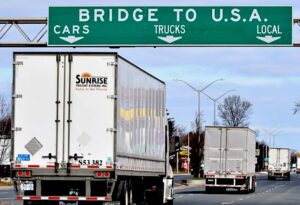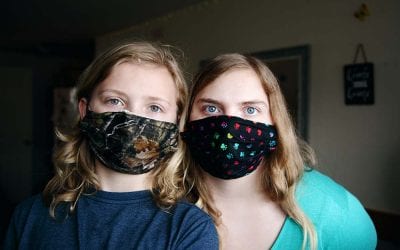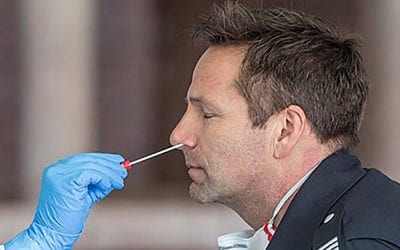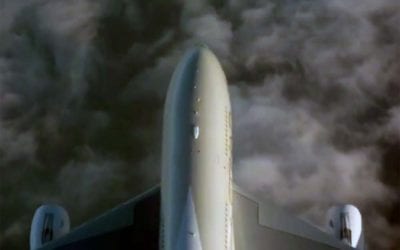Humans suffer far more than pandemic commodities because of international rules.

Why do citizens bear the burden of political decisions, but national and international commodities do not?
Recently, I watched a movie that began to open my eyes to this reality. The movie, The Man Who Sold His Skin, explored today’s world where commodities are far freer than individuals. The movie won international awards and was nominated for an Acadamy Award. It can be rented on Amazon Prime Video. The story unfolds about a Syrian refugee who is separated from the love of his life by the Syrian Civil War. He ends up a refugee in Lebanon. His girlfriend marries a rich diplomat and she moves to Brussels with her husband.
Refugees cannot get visas to cross borders. Yet, commodities cross easily every day.
In the movie, one evening when the refugee is attending an art gallery opening, the gallery staff catches him eating hors d’oeuvres to stave off hunger. But, when the artist sees the refugee being escorted out of the gallery, he stops the hungry man. He learns of the refugee’s status and discovers that his girlfriend lives in Brussels. Eventually, the refugee makes a deal with the artist. The refugee’s back becomes a canvas where the artist creates a tattoo.

The artist tells the refugee that he cannot travel anywhere as a Syrian War refugee, but he can travel anywhere as a piece of art, a commodity. Thus, one of the messages of the film comes into focus. As a piece of the economy, the refugee’s movement is easy. As a human victim of the war, he cannot even get a visa or a passport.
The movie goes on to demonstrate how well this human as a commodity is treated. He travels to Brussels. He stays in the finest hotels. Wraps himself in lush towels. Dresses in a thick bathrobe. Orders extravagant room service. And, finds his girlfriend. All actions that could not be done as a Syrian refugee. International economic rules control movement for commodities far differently than they do for humans.
During the ongoing 18-month-long pandemic, the government forbids individual travel to Canada and Mexico even to visit grandparents. But the “essential” economy continued.
The difference in moving individuals and pandemic commodities continues today in real life right here along the US/Mexico and US/Canada borders. They control entry into the “home of the free.” Everyday commodities and individual truck drivers cross the Canadian and Mexican borders for “essential travel.” After listening to a program presented by the Brooking Institution on restarting travel in the US I noted this remarkable difference between commodities and people. (The presentation is long but fascinating.)
Every day truckers have been exempt from border restrictions. Freight Waves noted on a news post that during the pandemic “allowing trucks to move freely between Canada and the U.S.” will be impacted by a return of passenger traffic. Other websites confirm that “Truck drivers. as essential workers, were not included in [a] travel ban” because of pandemic commodities.
Even though the US/Canada and Mexican border are now open, families suffered. Pandemic commodities did not.
During the pandemic, scores of Canadians and Americans have seen families and loved ones separated. Meanwhile, economies and “essential travel” for car parts, air fryers, red peppers, and fake beef continued unabated.
More than a year after the COVID-19 pandemic forced the border between Canada and the U.S. shut, couples and families separated by the closure are fighting to be reunited with their family members and loved ones.
“We’re asking for them to work with us to make some sort of exemption for us as well, because it’s not fair. They’re ruining relationships and they’re tearing families apart,” Tina Ouellette, who founded ‘Love Without Borders’,” said.
The Canada—U.S. border was first closed to non-essential travel on March 21 of last year for one month. Those closures have been renewed every month since then.
There are stories about grandchildren who could not see their grandparents during the pandemic. At the same time, Canadian red peppers filled the bins at Trader Joe’s and other essential pandemic commodities moved easily. Other grandparents are told that they cannot hug their grandchildren and they must maintain a two-meter distance from one another. Unfortunately, these stories were not highlighted by the mainstreet media like the current openings of international borders.
Unfortunate confusion reigned during the past 18 months. The world is still confused, even as it opens again.
I just returned from a trip to Spain. I wrote about my COVID adventures in my column “My international adventures flying after COVID — why no consistent rules?” The country rules range from how fully vaccinated travelers can enter their country. For departure from Spain to the US, the rules ask for a COVID test or a document excusing passengers from that requirement. Since I was advised by my home country to not have a COVID test, I showed up at the airport with my official letter saying I could board. However, the airline sent me off to be tested anyway at an airport clinic. I tested negative, so there was no problem.
Now, as the US and many other countries get ready to reopen for tourism, no secure vaccination certificates exist. The world will face less travel caused by differing rules. Plus, these differences in rules abound. All I can advise is to read entry rules carefully and keep your fingers crossed.
Finally, let’s hope we are all learning from this pandemic what is truly important in people’s lives. Interaction with family and friends, not just commercial goods, should be at the top of the list.
READ ALSO:
Why unmanned aerial systems need airspace rules to grow by
Look again! Rental car prices return to earth.

Charlie Leocha is the President of Travelers United. He has been working in Washington, DC, for the past 14 years with Congress, the Department of Transportation, and industry stakeholders on travel issues. He was the first consumer representative to the Advisory Committee for Aviation Consumer Protections appointed by the Secretary of Transportation from 2012 through 2018.




